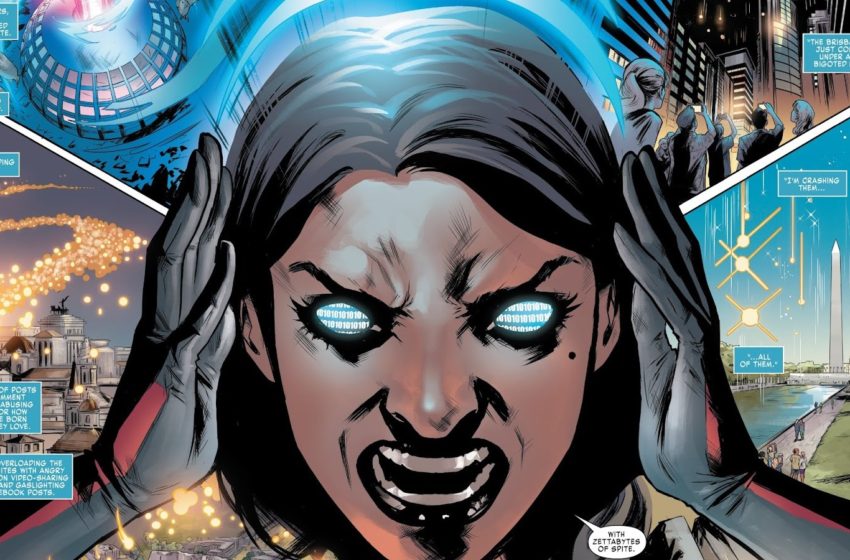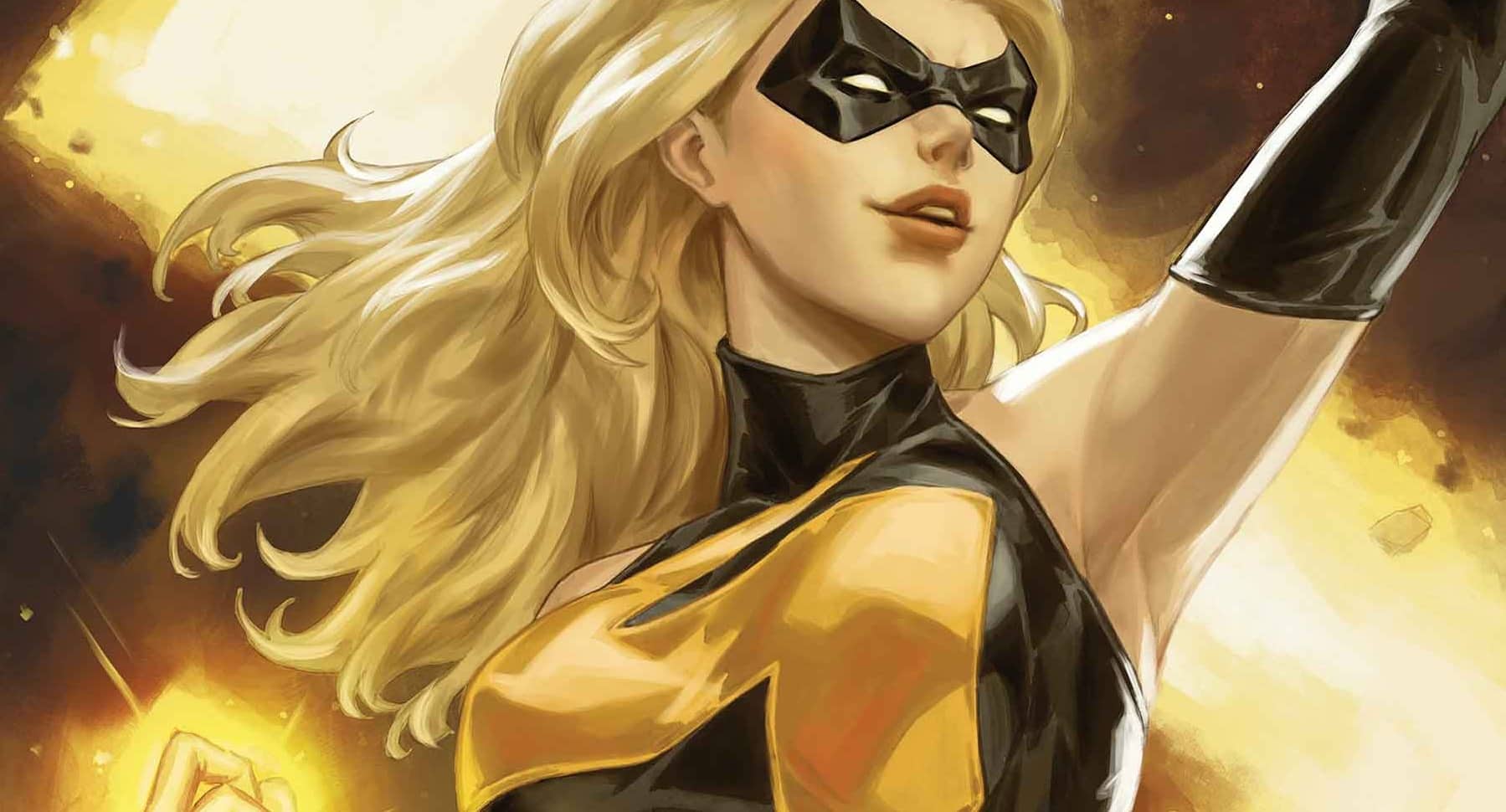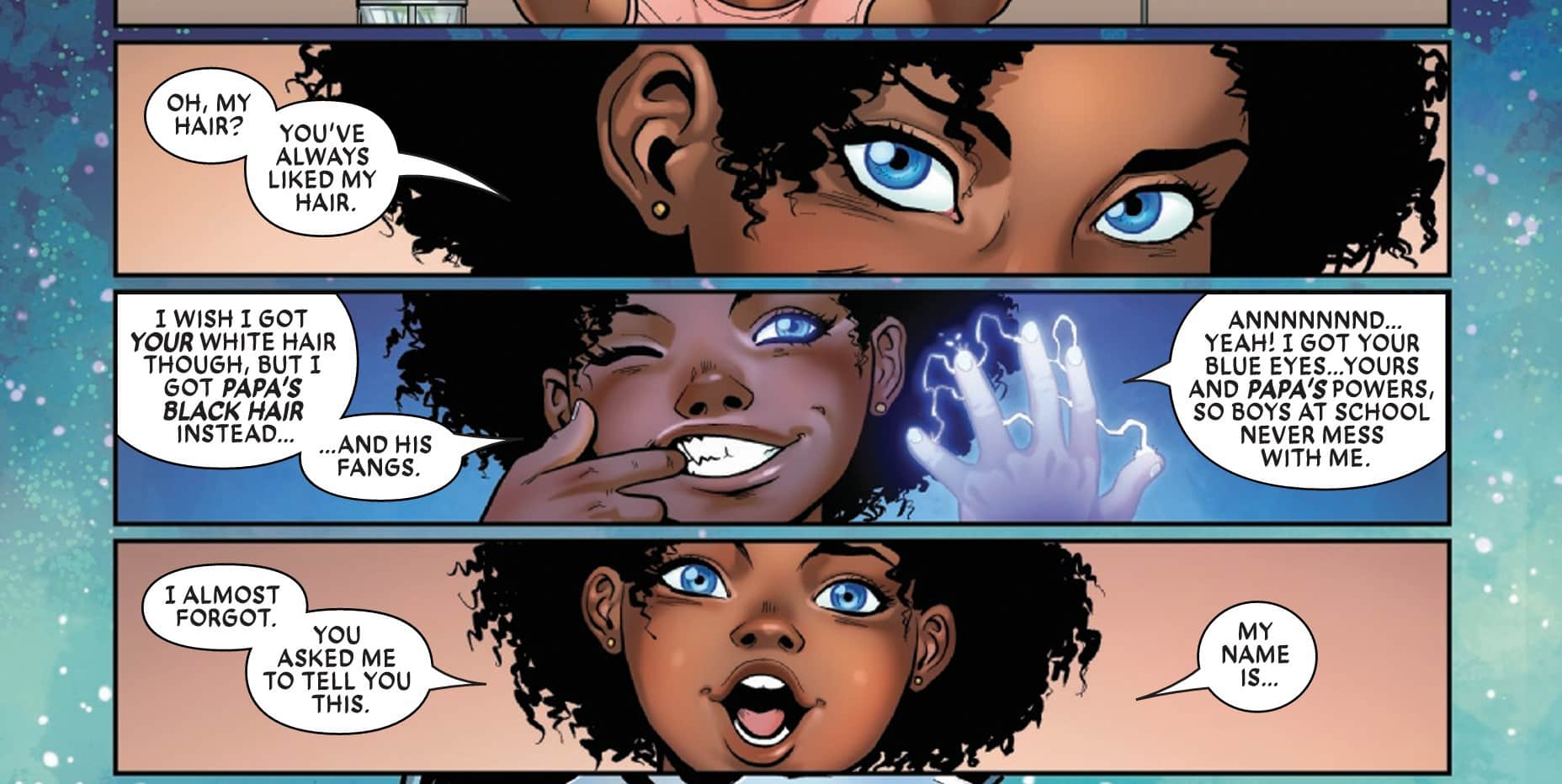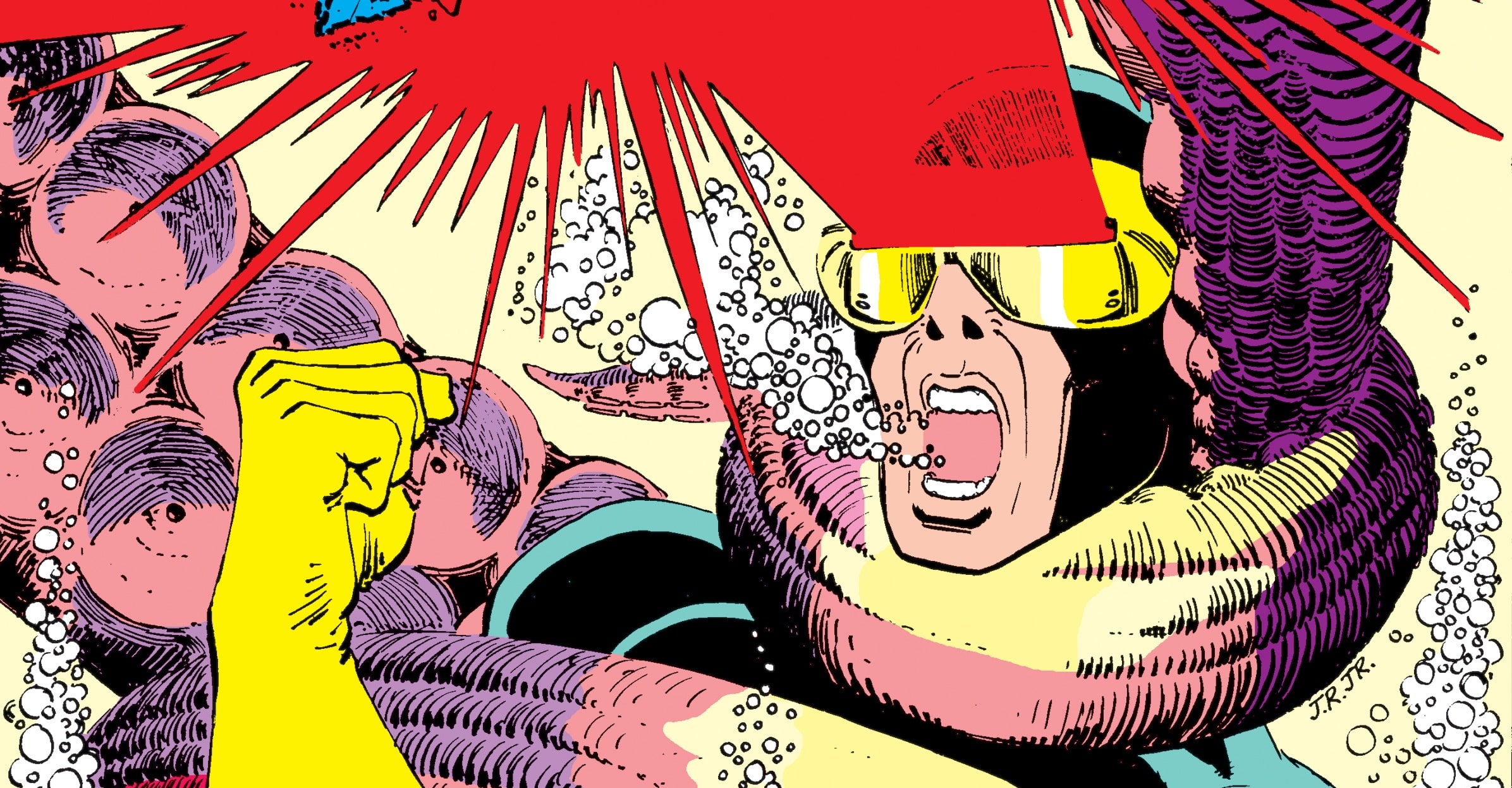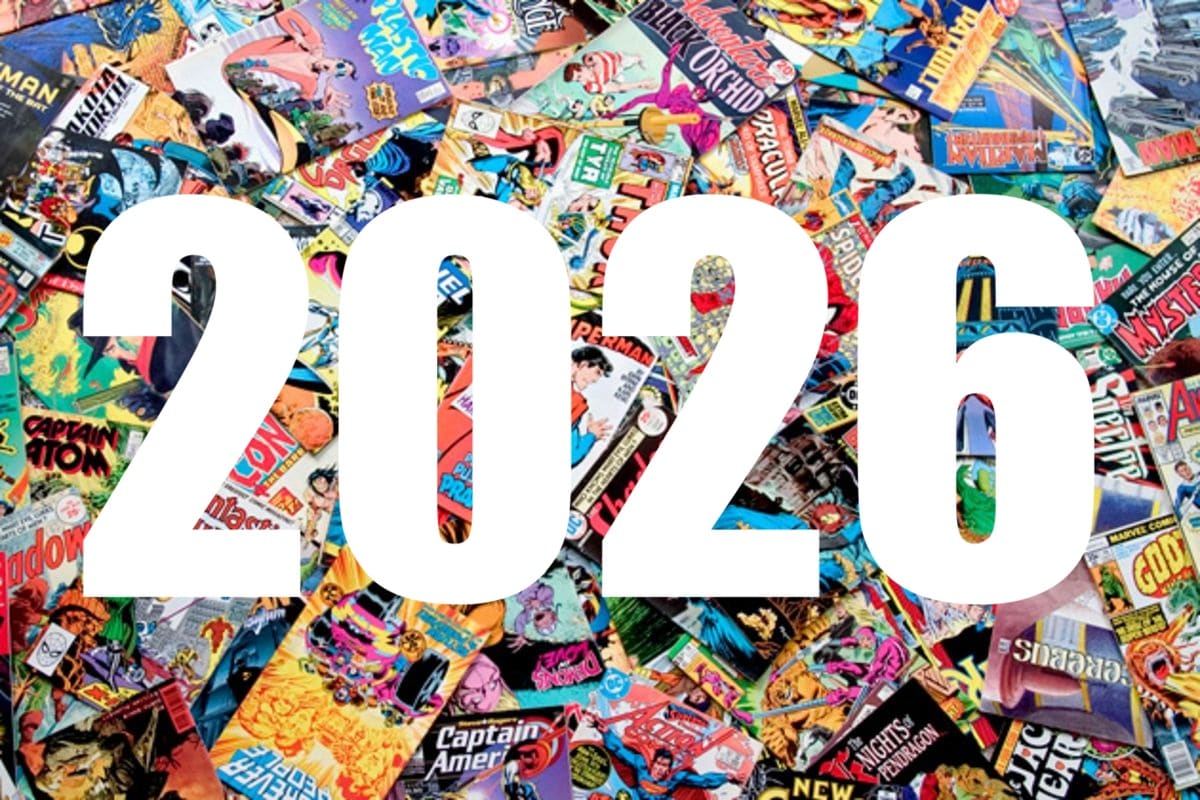I find myself thinking a great deal about representation, who gets represented and who gets to do the representing. Which is to say, I’m thinking a lot about X-Men: Red.
Not particularly because it’s any good or memorable, but because it created and launched a character, who has since appeared in X-Books elsewhere. I find myself thinking about it because as recent as this week, the book and its ideas were referenced, being fundamentally tied to said character. The character being, of course, Trinary.

An Indian mutant, who is a technopath, rescued from her captivity in Delhi by Jean Grey and her special team, she now stars in titles such as the current X-Corp. But every time I see her, every time I read the character, I think the same thing I thought while reading Tom Taylor’s X-Men: Red.
Who is this character for?
Is she for Indian people like me? Is she supposed to represent me or people like me? Who is this character actually for, really?
I really wondered about that, because reading X-Men: Red, I never for a second thought she represented my people. And reading even this week’s X-Corp, the feeling nagged at me. As I saw references to those ideas and notions from Red all over again, and saw how Trinary was written, I was made further and further uncomfortable.
There’s a lot that could be said as to why, and why Trinary bothers me, and other Indian folks I’ve spoken to. But let’s start somewhere quite simple:
What is her name?
Can you think of her name, right now, as you read this article? Can you think of her name without clicking away or googling it?
Google away now, only you’ll find that she still has no name.
“What?” You might say, in mild surprise. That’s a bit odd isn’t it?
Yeah. Yeah it is.
Trinary’s backstory is that she’s something of an ethical hacker, via her technopathic mutant powers, and thus was captured by supposedly The Indian Mutant Defense Force. Her father apparently reported her to them himself. Now, the IMDF, the oppressors and monsters, who Trinary is defined in relation to? They have a face, they have an identity, in the form of its director Lakshay Singh. Lakshay is the man, the monster, who Trinary is defined against. But here’s the thing:
Trinary doesn’t even get the grace of having a name, while her oppressor does, as she is solely defined in relation to her oppression.
That stuck with me. Even her monstrous oppressor gets a name, but she never does. That lack of humanity stuck with me.
But also, at once, I was not surprised. It made total sense to me within the vision of Taylor’s Red. It wasn’t a book for people like me, it was a book for people like Taylor. It was a book for other White people, who felt they were being inclusive, who felt they were progressive, and were championing diversity, who thought they were doing important work via representation.

But there is no actual meaningful representation happening in the pages of Red, or the books that pick up on it and Trinary afterwards, all written by White writers. No, what’s happening, and what we’re being presented with is The Aesthetics Of Representation. It’s not actually about authenticity, about putting in the work, about really thinking stuff through, about having sensitivity readers or consultation, it’s not about getting it right. What it is about is a lot of people think and believe it is meaningful, honest representation. But it isn’t.
Trinary isn’t us. Trinary isn’t my friends. She isn’t me.
Trinary doesn’t even have a name.
Trinary is explicitly how White people see us.
Trinary doesn’t need a name, and her codename/role is enough, because she is Tech Support: The Character. She is a stereotype dressed up as meaningful progress or truth, when there’s nothing but an empty shell of assumptions inside. She is a construct made in our image, that depicts how they view us, as they pat each other on the back for representation, diversity, and progress.
She is The White Lens upon my people made manifest. A construct to represent only their vision of us, but not actually us.
I read her, and I do not feel seen. I think ‘Ah, so that’s how they see us then.’ and what follows is active embarrassment, that this is what we get, that we’re supposed to cheer, as White folks proclaim how important and good this is.
And once again I think about The Aesthetics Of Representation and how prominent they are in comics. It is not, in fact, the actual authentic voices, the People Of Color, who get to make a ton of authentic PoC characters, who get to stick around, and get supported. It is almost always, always, White folks. Could I imagine Trinary being made anywhere else except Red, by an actual Indian writer, and getting what she does now? I genuinely can’t. Can you imagine Riri Williams (Ironheart) being made by an actual Black writer, rather than Brian Michael Bendis, and getting the same support and push from Marvel Entertainment that she does?
In the end, by and large, only White folks still get to do this stuff. And that may be changing, but the change is still slow and minimal, and predominantly this holds true. David Walker (the excellent writer of works such as Bitter Root, Shaft, Cyborg, and more) doing actually authentic meaningful representative work on his own will never get the support from the systems in Big Two comics publishing the way Bendis doing it alone from his White Lens will. This industry is still largely White as all hell, and The Aesthetics Of Representation matter more than actually meaningful representation.
‘Optics’ as a White writer once put it to me. Another tool in the hands of many White voices, as the word ‘diversity’ is utilized, to market their work, and present the vision of “This Is Important Work”, “This Matters”.

In the end, PoC are forced to get into these systems and ‘fix’ or ‘correct’ the constructs made by White folks before them, to actually present a meaningful truth, and one that resonates loudly, more than ever. But even still, when that character gets adapted, it’s not those marginalized folks who did the work that get the credit on screen, they’re not the ones getting that big paycheck, they’re not the ones in those puff-pieces done by White reporters with White writers that go ‘So why did you, a White person, make this very important thing for all those non-White people?’. They don’t get any of that. They’re still below the White folks, who sitting on The Aesthetics Of Representation get cheers and applause for doing that which many marginalized folks would kill to get to do, but couldn’t even dream of, as things stand.
And I look at characters like Trinary, and I wonder ‘Do I actually want an Indian voice to put in the work to make her honest, meaningful representation?’ and the answer is no, I’d rather those authentic voices made their own new characters, who actually represent people like me, who they get paid for, rather than having to watch them work hard on something they’ll never get the credit or pay for when it’s used elsewhere. I don’t need to see them do the work for which Tom Taylor gets to do press for when it’s adapted.
It all, again, comes down to Doing The Work. Trinary is a prime example of the actual work not being done, with the aesthetics and gesturing of it being done prioritized.
Her debut in Red is centered around an attempt at ripped-from-the-headlines and researched relevance, as Trinary brings up a big pay gap between men and women, and cultural misogyny. But it reads like someone Googled up ‘Top 10 Facts About India’ and decided ‘This is the one I’ll go with’.
It’s a problem that comes up more clearly, and is much more fundamental, with the entire idea of The Indian Mutant Defense Force. As I read it, my immediate thought was ‘Does this book know what this actually means?’ because The Mutant Metaphor is a thing that breaks at this point. The question, if you’re going to do this and create this, really needs to be ‘How does The Mutant Metaphor, when framed and placed in a non-western context, one of India, play, and intersect with the bigotries and oppression present there?’

And that takes work, that takes an understanding, that takes considerable thought, none of which is present here. None of that thought seems to have been there at all. Nobody was asking these questions, because I don’t know that anyone working on it even knows to be asking them. Thus everything is nebulous and vague, and a set of meaningless gesturing and buzzwords in Red. If you want to write about relevant subjects and oppression and bigotries in a modern India, then surely Hindutva and the islamophobia that’s tied up with are obvious ones? Or at least Casteism, and its insidious nature should come up? Not that I’d want White voices like Taylor to write about that, but, y’know, that’s an awareness and understanding of the stuff that you’d be dealing with if you actually did ‘We’re going to India, and we’re going to be relevant! It’s gonna be about The Mutant Metaphor!’
Does anyone working on this book actually know or have any proper sense of what bigotry and oppression in modern India look like? I don’t know that they do, and if you’re going to weave your big genre metaphor into the reality of a thing, you need to.
It’s why Red reads like all that can be considered with said metaphor is a limited western-specific White Lens, and it’s also why the metaphor completely breaks apart for me in that book. What is meant to be Political, Relevant, and Important, taken from reality, descends into utter and absolute cartoonish absurdity for me. I’d almost laugh, if I wasn’t wincing and sighing so much at the parodic display on-page.
It’s why in the end, Trinary is just ‘Trinary’ and is just ‘Indian’, because the creatives have no real sense of what that means. They didn’t dig any deeper. India is a country with upto 26 languages of its own, with a long history, with numerous groups of people, in numerous states, that are all wildly different. It’s a place where a myriad of different backgrounds come together. Your name alone indicates a lot, and becomes part of that. It’s why just the vague ‘Indian’ is ridiculous. It’s a bit like someone defining a character solely as ‘European’, when it’s like…okay, but where from Europe, exactly? What is the background? Who is this person? What do they have to deal with?
Trinary is held captive in Delhi, but I don’t actually know from reading the book if that’s where she is actually from. If she is, who is she? Who is she as a person beyond all her pain and trauma? She is not defined as a person, or given proper interiority, with any reflection on who she is, beyond how she’s tied to the vaguely defined nebulous vision of oppression Taylor’s work presents, and beyond that, Trinary is just Tech Support for the book’s plot.
This is all without getting into the fact that Red was largely a book with a cast led by White-characters, from the Western world, who formed a super-team to enter and take action on foreign soil. This is pretty much the kind of thing The Authority critiqued and was about, as brutal satire, pointing out how this ‘realism’ fare ends up in superhero fiction, especially from a western White lens, but it is not a point or something that works like Red have the critical capacity to consider.
It’s a book wherein the two principal People Of Color (who the book tries to pair together, because of course it does) are defined in relation to the cultural misogyny of their people, whether it be the fictional Wakanda in the case of Gentle, whose mother, a woman abused by her husband, rejects him, or the very real India in the case of Trinary. They are both, of course, accepted and cared for by the heroic White people of the western world who treat them better, as they should be. I read stuff like this, and I wonder ‘Is the White writer actually aware of what they’re writing and how they’re treating the only non-White characters and cultures they’re presenting in the book?’ It’s the question I was contemplating once again, when the book has Storm, a Black woman, attack the team, not having agency on her own body, possessed into doing so. Which I note because Red is also a work wherein Bigotry and Discrimination are caused by nanobots/sentinel technology, and it’s a virus.
There’s no actual awareness of race, or systemic racism or the structures and baked-in ideas that help maintain it. The work is the quintessential White Liberal Response text of the Trump era, which lacks actually meaningful Leftist intersectional thought and consideration. It evokes fascism, misogyny, xenophobia, racial struggles, but does not have a meaningful grasp on any of them.

It’s why I look at Trinary, and feel desperately tired, as I see the character caught in the web of all this, forever a manifestation of how White people see us, which is to say, they don’t really see us, they look right through us and see this construct instead. At least, that’s what it feels like.
The words I come back to, and I come back them to a lot recently, are these:
You can’t see me, can you? You look at me, but you can’t see me. Have you any idea what that’s like? Please, just…just see me.
Doctor Who “Deep Breath”
I’m tired of being shown scraps in the form of representation in these Marvel and DC worlds, and I’m further frustrated that we are expected to accept or be okay with these poor scraps. Authentic Representation matters more than The Aesthetics Of Representation. And that begins with representation behind the page, as to who is editing and writing these things, with who is overseeing these things. You don’t get a Ms. Marvel without Sana Amanat, you don’t get a Static without Dwayne McDuffie, and that’s what we desperately need more of.
But also, if White creators wish to include us and write us, then they need to do the actual work, the hard work, and actually include us. None of this is supposed to be ‘easy’. It’s hard, it’s a lot of work, and it’s what makes it worth doing. Careful deliberation is needed, as well as discernment, to identify what stories are yours to tell and what stories aren’t. But also to write people, in all of their humanity, rather than write about them via an outward assumption, which takes away from their humanity. It’s why one cannot be careless, and why one needs to listen.
Because in the end? Truth matters more than Optics. And that’s what all good, meaningful storytelling is about and aspires to. The truth, messy, and weird, and hard as it can be, because it conveys something real. A truth that is lived, a truth that is experienced, a truth that connects and binds.
Ritesh Babu is a comics history nut who spends far too much time writing about weird stuff and cosmic nonsense.

